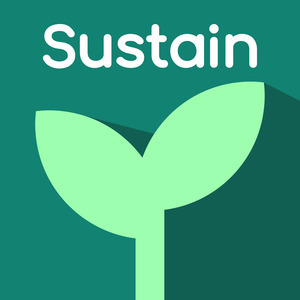Episode 234
Simon Vansintjan on Mirlo
May 24th, 2024
29 mins 38 secs
About this Episode
Guest
Simon Vansintjan
Panelist
Richard Littauer
Show Notes
In this episode, host Richard Littauer and guest Simon Vansintjan dive into the topic of open-source sustainability in the music industry. Simon, a long-time friend of Richard and a seasoned coder and designer, introduces Mirlo, an innovative online platform he's working on that combines elements of Bandcamp and Patreon to enable direct financial support for musicians. Mirlo, an open-source project built with a full-stack TypeScript, Express, Redis, Postgres, and React, aims to provide an alternative to traditional music streaming services by focusing on direct artist support and community engagement. Simon discusses the challenges and benefits of building Mirlo as a cooperative, the intricacies of its development and funding model, and the broader implications of open-source principles in creating a more equitable and sustainable ecosystem for musicians. Hit download now to hear more!
[00:01:38] What is Mirlo? Simon explains it’s an online record store where users can buy digital music directly from musicians and provide monthly support, similar to a combination of Bandcamp and Patreon.
[00:02:32] Simon discusses Mirlo’s open source status and its tech stack, which includes TypeScript/JavaScript, Express, Redis, Postgres, and React.
[00:03:13] Richard inquires about the origins of Mirlo, and Simon describes his work with Resonate, issues with legacy code, and the decision to create Mirlo to explore sustainable business models without venture capital.
[00:04:16] We hear that Spotify isn’t profitable as Simon discusses the challenges streaming service face, which led Mirlo to adopt a different model.
[00:05:04] Simon explains Mirlo’s co-op structure, focusing on worker empowerment and non-hierarchical decision-making, contrasting it with Resonate’s multi-stakeholder co-op model.
[00:08:57] Richard asks about Mirlo’s sustainability model. Simon describes Mirlo’s revenue model, which includes taking a small cut from each sale, user contributions that cover server costs, and plans for grants and a Kickstarter campaign.
[00:10:23] Simon explains the complexities of starting as a nonprofit and the decision to form an LLC for greater flexibility.
[00:11:03] Richard questions the distinction between artists and worker owners. Simon discusses the different models for including musicians as co-owners, ongoing experimentation with the co-op structure, and the importance of recognizing musicians’ contributions to Mirlo.
[00:13:07] The conversation turns to contributors to the GitHub codebase, and Richard mentions a couple of contributors and wonders if they have equal shares as worker owners. Simon explains that neither contributor is a worker owner, and he talks about the challenges in tracking contributions for co-ownership.
[00:16:28] Simon highlights the slow process of building trust and the challenges posed by financial constraints, emphasizing the need for time and money.
[00:18:29] Richard shifts focus to the codebase and notes the absence of contributing docs, asking about the onboarding process for new contributors. Simon explains their use of a Discord server for feedback and onboarding.
[00:20:18] Richard questions the benefits of being open source for Mirlo, and Simon emphasizes all the significant benefits of being open source.
[00:21:30] Mirlo’s competitive space is brought up and Simon acknowledges the moral aspect and mentions Mirlo’s near feature parity with Bandcamp, excluding merch and label support. He explains the Mirlo isn’t necessarily trying to compete directly with major platforms but aims to create a diverse, open, and transparent internet space.
[00:23:52] Simon explains the Kickstarter rewards, including a compilation album and merch, and when it ends.
[00:25:31] Richard praises Mirlo’s intentional cooperative approach and its efforts to maintain and grow the platform sustainably and Simon encourages listeners to go check out Mirlo, mentioning he has purchased music from the platform.
[00:26:19] Find out where you can follow Simon online.
Quotes
[00:16:46] “A lot of [this project] is built on trust. It takes a long time to build trust with people.”
[00:20:25] “The code is much better for [being open source].”
[00:21:06] “Being open source generates trust.”
[00:22:05] “We’re noticing that people care about it being a co-op, and that people care about it being open source.”
Spotlight
- [00:27:12] Richard’s spotlight is Ryo Fukui, a Japanese jazz pianist.
- [00:27:48] Simon’s spotlight is the book, “Noise Uprising: The Audiopolitics of a World Musical Revolution.”
Links
- SustainOSS
- SustainOSS Bluesky
- SustainOSS Discourse
- podcast@sustainoss.org
- SustainOSS Mastodon
- Open Collective-SustainOSS (Contribute)
- Richard Littauer Socials
- Simon Vansintjan Mastodon
- Sustain-Episode 129:Per Ploug and the Spotify FOSS Fund
- Resonate
- Mirlo
- Mirlo Kickstarter: Musicians as worker-owners in co-operatives
- Ryo Fukui
- Scenery (Ryo Fukui album)
- Noise Uprising: The Audiopolitics of a World Musical Revolution by Michael Denning
Credits
- Produced by Richard Littauer
- Edited by Paul M. Bahr at Peachtree Sound
- Show notes by DeAnn Bahr Peachtree Sound
